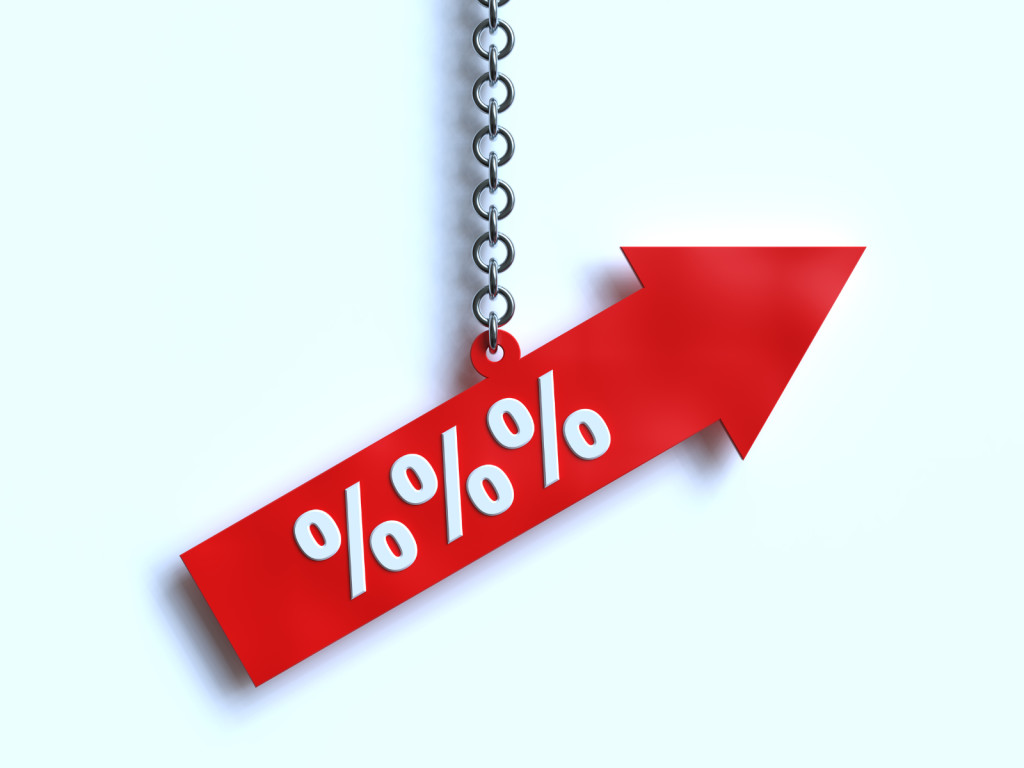In the fast-paced world of real estate, timing can be everything. When you're shopping for a mortgage in a hurry, it's easy to overlook key details that could cost you thousands of dollars over the life of your loan.
That's why asking the right questions is crucial. Here are the 12 must-ask questions for when you're in a hurry to shop for a mortgage.
1. What's My Credit Score?
Think of your credit score as a numeric snapshot of your reliability in terms of credit. This figure greatly influences the interest rate on your mortgage. The FICO score is the most commonly used system for this, and it ranges from 300 to 850.
- Excellent (750+): Borrowers with excellent credit scores often qualify for the lowest interest rates available.
- Good (700-749): Still considered strong, good credit scores typically result in favorable loan terms.
- Fair (650-699): Borrowers with fair credit may face higher interest rates and may need to provide additional documentation.
- Poor (Below 650): Those with poor credit scores may find it challenging to secure a mortgage and may have to look into other types of loans.
To ensure you have the most accurate picture of your creditworthiness, it's essential to check your credit score from all three major credit bureaus—Experian, Equifax, and TransUnion—since scores may vary slightly.
2. What Type of Mortgage is Best for Me?
Mortgages have various options, each with its own special qualities. Having a grasp of these diverse types can assist you in making a well-informed decision:
- Fixed-Rate Mortgage: This type offers stability, with a consistent interest rate over the life of the loan. Borrowers prefer fixed-rate mortgages for predictable monthly payments.
- Adjustable-Rate Mortgage (ARM): ARMs offer lower interest rates at the beginning, which can be appealing if you intend to sell or refinance soon. However, be prepared for potential rate adjustments, which can increase your monthly payments.
- Interest-Only Mortgage: Interest-only mortgages let you pay just the interest for a certain time, reducing your initial payments. However, you won't be building any ownership in your home during this period. Keep in mind that a larger payment called a "balloon payment" will come due later, potentially increasing your monthly expenses.
3. What Are the Interest Rates?
Mortgage interest rates fluctuate daily due to various economic factors, including the Federal Reserve's actions, inflation, and market demand. These rates significantly impact your monthly payments and the overall cost of your loan.
- Fixed vs. Adjustable Rates: Fixed-rate mortgages offer predictability with a locked interest rate, while adjustable-rate mortgages start with a lower initial rate that can change over time.
- Market Timing: Keep in mind that timing is crucial. Monitoring interest rates and locking in a favorable rate when you find one can save you money in the long run.
4. What Are the Closing Costs?
Closing costs encompass various fees associated with finalizing your mortgage. These fees typically include:
- Origination Fees: Charged by the lender for processing your mortgage application.
- Appraisal Fees: To assess the value of the property.
- Title Search and Insurance: To ensure the property's title is clear and insurable.
- Escrow and Prepaid Items: Funds set aside for property taxes, insurance, and other recurring costs.
- Attorney Fees: Legal services related to the mortgage transaction.
Knowing the exact amount you'll need to pay upfront is essential for budgeting. Lenders are required to provide you with a loan estimate that breaks down these costs. Be sure to review this document carefully and compare it among different lenders to get the best deal.
5. How Much Can I Afford?
Knowing your financial limits is essential when dealing with mortgages. Take these essential factors into consideration:
- Income: Calculate your monthly income, including salary, bonuses, and any other sources of revenue.
- Expenses: List your monthly expenses, such as utilities, groceries, insurance, and other financial obligations.
- Down Payment: Decide how much you can put down upfront, which can significantly impact your loan amount.
- Debt-to-Income (DTI) Ratio: Lenders often follow a rule called the 28/36 guideline. This means that your housing costs should be no more than 28% of your total income, and all your debt payments combined shouldn't exceed 36%.
6. What's the Down Payment Requirement?
Down payment requirements can differ depending on the mortgage program you choose.
- Conventional Loans: These generally require a 20% down payment to sidestep private mortgage insurance (PMI).
- FHA Loans: With the option of a low down payment, often just 3.5% of the home's purchase price, which is why they're popular among first-time buyers.
- VA Loans: Offer zero-down financing to eligible veterans and active-duty service members.
- USDA Loans: Tailored for rural and suburban homebuyers, these loans also provide zero-down financing.
Be clear about the minimum down payment expected, and explore options like government-backed loans that may offer lower down payment requirements.
7. What's the Loan Term?
The loan term defines how long you'll pay off your mortgage and impacts the total interest you'll shell out. Typically, you'll find loan terms of 15 or 30 years.
- 15-Year Term: Offers a shorter payoff period with quicker repayment and lower overall interest expenses.
- 30-Year Term: Provides lower monthly payments but extends the time it takes to pay off the loan, resulting in higher overall interest costs.
Keep your financial goals in mind and how long you expect to live in your home while deciding on a loan term. It's important to remember that other durations are available, such as 10 or 20 years.
8. Is There a Prepayment Penalty?
Some mortgages come with prepayment penalties, which can be costly if you plan to repay your loan early. These penalties can vary in terms and conditions, so it's crucial to understand them fully.
- Hard Prepayment Penalty: Imposes a fee for paying off the loan early, often within the first few years.
- Soft Prepayment Penalty: Limits your ability to refinance the loan but doesn't necessarily incur additional fees.
Choose a mortgage without a prepayment penalty if possible to maintain flexibility in your financial plans.
9. What Are the Qualification Requirements?
Lenders have specific criteria for assessing borrowers' ability to repay the loan. Understanding these requirements can help you prepare:
- Income and Employment History: Lenders typically require stable income and employment history.
- Debt-to-Income (DTI) Ratio: This ratio measures your ability to manage debt and is a significant factor in mortgage approval.
- Credit History: A good credit history demonstrates your financial responsibility.
Being ready with documents like pay stubs, tax returns, and bank statements is crucial. These help prove your financial stability to potential lenders.
10. Can I Lock in My Interest Rate?
Interest rates can fluctuate while your mortgage application is in progress. Ask if your lender offers the option to lock in your interest rate to avoid unexpected increases before closing.
Rate locks typically come with expiration dates, so be sure to finalize your mortgage before the lock-in period expires. This protects you from potential rate hikes that could increase your monthly payment.
11. Are There Any Special Programs or Discounts?
Explore any special programs or discounts offered by lenders that you may qualify for:
- First-time Homebuyer Programs: These programs often provide lower interest rates, down payment assistance, or reduced fees for those purchasing their first home.
- Military Discounts: Active-duty service members and veterans may be eligible for VA loans, which often have favorable terms and lower down payment requirements.
- Special Incentives: Lenders may offer incentives or promotions, such as reduced closing costs or cashback, to attract borrowers.
Taking advantage of these programs and discounts can help you save money on your mortgage.
12. What's the Timeline for Closing?
Closing on a mortgage can take time, and in a hurry, it's vital to know how long the process will likely take. Various factors can influence the timeline:
- Complexity of Application: More complex applications may require additional time for underwriting.
- Availability of Required Documents: Ensure you promptly provide all necessary documentation to avoid delays.
- Lender's Processing Efficiency: Some lenders may process loans more quickly than others.
Coordinate your timeline with your real estate agent and lender to avoid any last-minute issues, and ask for updates throughout the process to stay informed about your loan's progress.
Fast-Track Your Way to Mortgage Success
Mortgage shopping in a hurry doesn't have to be overwhelming. By diving deep into each of these 12 essential questions and considering the additional information provided, you can streamline your decision-making process and secure the right mortgage for your needs.
Always remember that in the rush of things, doing your due diligence and thinking things through will enable you to make a solid financial decision. So, whether you're a first-time homebuyer or a seasoned homeowner, approach mortgage shopping with confidence and clarity, and you'll be well on your way to securing your dream home with an informed decision.
MJ Brioso, Editorial Staff
MJ Brioso is a content writer who takes pleasure in creating compelling and informative articles about health and lifestyle. During her free time, you'll likely find her indulging in shopping or passionately exploring the world of fragrances.
Sources








